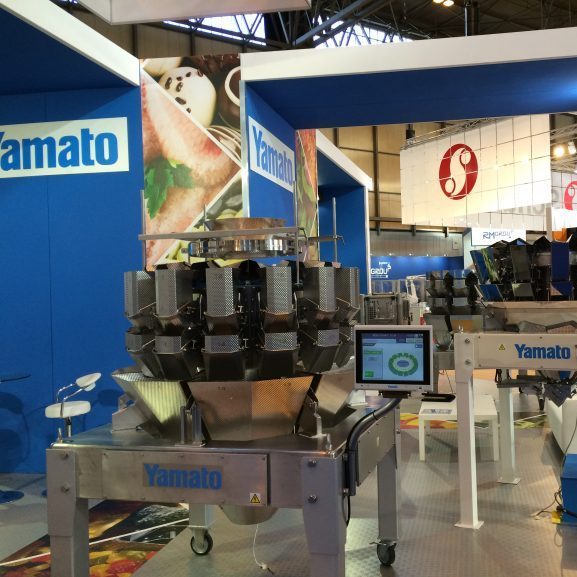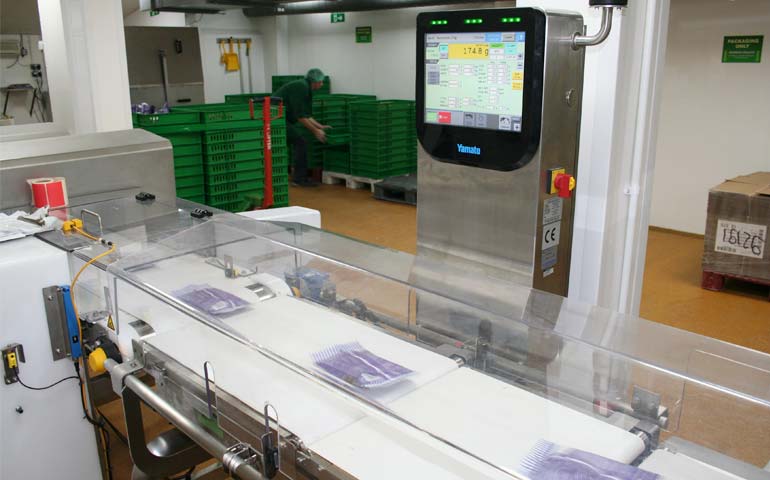6 simple steps to minimise downtime in your production line
Having your production line standing idle is frustrating at best, and very costly at worst. The deafening silence on the shop floor is a harbinger of missed orders and lost revenue as production deadlines are missed.
According to research into downtime, it can be hard to estimate the actual cost to your business. Many businesses underestimate the true cost of a lengthy break in production, but it could be between 5% and 20% of productive capacity.
There are many factors to consider in the total cost of your downtime. These include, but are not limited to, labour, product and start-up costs, temporary repair costs, OEM, consulting and contractor costs, tooling, parts, lost sales revenue…the list goes on.
How do you stop this nightmare scenario putting the proverbial spanner in the works? There’s no need to panic. There are several ways to keep your lines in tip top condition and running smoothly.
Contact one of our experts today.
There are two kinds of downtime that you are likely to experience: planned and unplanned.
- Planned downtime – includes product changeover and cleaning, planned maintenance
- Unplanned downtime – may occur due to break-down, mechanical failure of specific parts, software malfunction or a shortage of suitably trained operators.
Here are our 6 steps to avoiding unnecessary downtime:
- Make cleaning and product changeover easy
- Undertake regular, planned maintenance
- Invest in staff training
- Upgrade older equipment
- Update software regularly
- Buy genuine OEM spare parts
Cleaning and product changeover
Choosing machines that are easy to move and clean helps to significantly reduce planned downtime. Internal systems – Yamato has complimentary systems which can help to minimise downtime. For example, Yamato recently introduced its C-Frame system, a mobile mounting solution for multihead weighers. A Yamato multihead weigher is positioned on Yamato’s new C-Frame system, a unique pneumatic frame with a very small footprint for raising and lowering multihead weighers into position in the production line and supporting them during operations. It is light, manoeuvrable and easy to use.
This type of system is ideal for production lines that are within close proximity of one another. It allows one system to be removed and cleaned while the other lines remain in production, thus minimising the impact of downtime and maintaining productivity.
Mulithead weighers and checkweighers are also designed with ease of change over and cleaning in mind. Buckets on mulithead weighers are easy to remove and replace quickly without the need for specialist tools. The surfaces on some machines also include proprietary stainless-steel surfaces that prevent products sticking to the making them easier to clean and help avoid flavour transfer from one product to the next.
Regular planned maintenance
Regular maintenance reduces downtime, risk and machine failures and increases component life. Keeping production online for longer increases profits and ensures the peace of mind you’re your machinery is safe, functions as it should and is fully compliant with industry regulations.
When you purchase and install your automated weighing solutions there are various maintenance packages available to meet your specific requirements including fixed response times and site visit frequency.
Comprehensive packages usually see engineers respond within 12 hours of a call. This rapid response will ensure engineers check machines to ensure they are running efficiently and effectively, keeping downtime to a minimum.
You need to track and understand the frequency of your downtime and understand the reasons for it.
Find out more about our servicing and maintenance packages.

Invest in regular staff training
The gains made possible from automating your processes are always offset by the investment required. By ensuring your operators are fully trained (and thus, your equipment being maintained) you not only reduce down time. You are lengthening the lifetime of your equipment.
Servicing, repairs and troubleshooting are all critical to ensuring your investment works for you, keeping your productivity gains up and your maintenance costs down.
A trained operator requires less supervision. They not only have the skills needed to keep your machines maintained and running, they will also be able to fine tune operations to boost accuracy and efficiency.
Good quality operator training, such as that offered by, Yamato allows you total control of your machinery, unlocking its potential.
If you have a trained operator who is assigned new duties or leaves your organisation, a hand-over to a new operator may not be as in-depth as the instruction provided by Yamato. Bad habits and shortcuts may be passed on, leading to incomplete checks and procedures that could lead your new staff to miss important warning signs of imminent damage or underperformance.
Operator training modules for checkweighers and multihead weighers include (depending on the equipment in use):
- Principles of Operation
- Tare/Zeroing
- Manual Operation
- Cleanouts
- Automatic operation
- Controlling product flow
- Alarms
- Metal detection
- Printers
Getting these principles across to the right staff will assist you in minimising downtime.
Upgrade older or obsolete equipment
This might sound obvious to you, but there is a lot to be said for investing in new machinery. If you hang on to something to the bitter end simply because it cost you a large sum of cash when it was new could be counter productive. Manufacturers can – and do – make older machines obsolete and cease supporting them with spare parts or service. So, if you have a machine which is obsolete the only way to maintain it is if you keep a large stock of spare parts and have suitably trained staff to keep it running.
When parts become obsolete, manufacturers will often run buy-back schemes to encourage customers to update their machines. Yamato’s older G-Series checkweighers being phased out now. Owners are being incentivised to purchase the I Series as a replacement. When they do, Yamato will buy back the G Series machine, regardless of age or condition, for £4,000.
If you have a G series machine in your line contact one of our experts for more information.
There is a case for keeping a stock of spares, consumables and ancillaries that you use regularly in order to save on costs – taking advantage of purchase offers for example, and time. You don’t want your machines offline and unproductive while you wait for your order of spares to turn up.
Upgrade and update software and computer systems
A high degree of sophistication is needed to meet the demands of complex networks and the development of the industrial Internet of Things (IIoT). This means the increasing volumes and sheer variety of data.
Connections for machine to machine communication must be able to withstand frequent cleaning and mechanical, thermal and chemical stresses.
To ensure the maximum efficiency of a full-line solution each element communicates with the other using unique protocols which enable very quick recalibration resulting in significant cost efficiency thanks to reduced giveaway and better accuracy.
Installing a data monitoring system is a great way to keep an eye on why downtime is happening and what levels of product giveaway you are experiencing due to over filling.
Machines communicate using serial bus and ethernet allowing you to experience increased speed, increased accuracy, higher efficiency, faster troubleshooting, easier diagnostics, faster error recovery, and maximized uptime to increase your profits and reduce your maintenance and downtime costs.
Buy genuine spare parts
We can’t emphasise this enough. Genuine parts are guaranteed to fit into your existing machines as intended, which will allow processes to continue as intended. These parts are also more likely to work effectively for longer, meaning you can reduce waste and other production issues. Due to this, using genuine parts can improve your return on investment so you get more value.
By buying a genuine replacement for your machines, you are ensuring that it will be designed to fit as it should. Original equipment manufacturers (OEMs) of these machines will take time to check that parts meet the required specifications and that the parts have been rigorously tested. This won’t be the same case with pirate parts, which are often poorly designed and untested.
Ongoing research and development regarding into machines and parts and increased revision control means that any parts you buy will likely benefit from being up to date and provide you with the best results.
Using genuine parts can also assist you with warranty compliance and safety, all of which can help reduce your downtime.
For more information on how Yamato can help you minimise downtime in your production line speak to one of our experts. Call 0113 322 1546 or visit https://yamatoscale.co.za/public/contact/ and complete our contact form.


